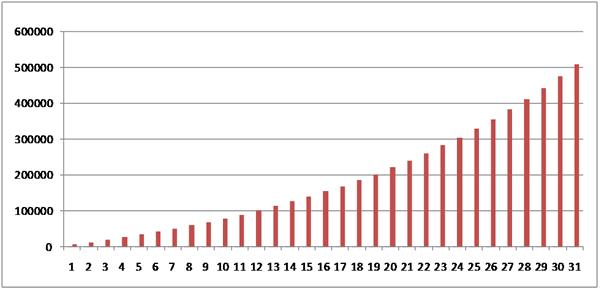With every passing year, the nation's social security system looks increasingly shaky. Today's 20- and 30-somethings will live in a world with later retirement ages and relatively smaller social security payouts. Adding financial insult to injury, today's younger members of the workforce are unlikely to be in line for a traditional pension, which had been the cornerstone of their parents' and grandparents' retirement savings.
When viewed from all these disappointing angles, it's more important than ever for young workers to start saving for retirement as soon as possible, right?
Wrong.
Young People Saving for Retirement Could Be Vulnerable to Debt
My friend Cathy first started saving money in her 20s. She was only making around $40,000 a year, but she made it a priority to squirrel away $100 every month in her 401(k). While this was great for the brokerage firm who administered her 401(k), Cathy was actually getting poorer each month. Her biggest problem -- Cathy was still saddled with student loans and credit card debt. The credit card companies were charging her double-digit interest rates while her 401(k) could only realistically grow 6-8% per year.
Years later, Cathy became unable to add to her 401(k) because the interest on her debts ate up all of her savings. The tremendous pressure she put upon herself to start saving for retirement meant she had very little money to pay down her debt loads, and they eventually overwhelmed her. At $40,000 a year, she wasn't able to make a major push into her 401(k), anyway -- after over 10 years of saving, she had about $10,000 set aside.
Which brings us to the next financial pitfall: Cathy can't access that $10,000 without large penalties and tax bills.
Many young workers have found that they started saving early only to be hit by an unexpected roadblock, such as a lost job or a large medical bill. Invariably, they have had to pull money out of their 401(k)s to make ends meet. That's why it pays to put one to two years' worth of expenses into a savings account; you never know when you'll need that 'rainy day' money.
The financial services industry has a vested interest in seeing you open a retirement account -- after all, they're a nice source of profits for these firms. Don't let their sales pitches pressure you. Plan for the day when you will start saving for retirement, but know that getting the rest of your financial house in order should be the first priority.
A Better Strategy -- Pay Off High-Interest Debt First
By the time Cathy turned 35, she earned a raise and began making $65,000 a year. Her supervisor made about $85,000 a year -- a salary she looked forward to as she worked her way up the corporate ladder.
At that point, Cathy made a new game plan.
She ranked all of her debt according to their interest rates, and because she earned a higher annual salary, she had more money left over to start paying off the highest-interest debt first. In about five years, she made a major dent in her total debt.
On her 40th birthday she would finally start focusing on building a solid retirement nest egg.
Since she expected to be earning closer to $85,000 by then, instead of putting away $100 a month like she did in her 20s, Cathy would be able to save about $500 a month. By the time she turned 50, Cathy would have saved about $90,000 -- assuming a 6% annual return in her 401(k). By the time she hit 60, she would have about $240,000 in the bank. That figure rises to $500,000 by the time she is 70.
Chart: 30 Years Later, Plenty of Money Saved ...

This isn't to suggest that college grads should have a decade-long party. Once all debts have been paid off, you should be aggressively saving for retirement. But for many of us, that's a task made much easier as we move into our peak earning years. It's simply hard to save a meaningful amount of money when you're 25. A decade later, it should be a lot easier.
More Ideas to Pay Off Your Debt Fast:
- Free yourself from credit card debt this year. Learn how to pay 0% on your balances for up to 21 months in The 4 Best Credit Cards for Balance Transfers in 2019.
- Slash your car payments. If you're paying 6% APR or more, it's time to know The Top 3 Reasons to Refinance Your Auto Loan.
- Eliminate your college debt: 7 Simple Ways to Pay Off Any Size Student Loan.



